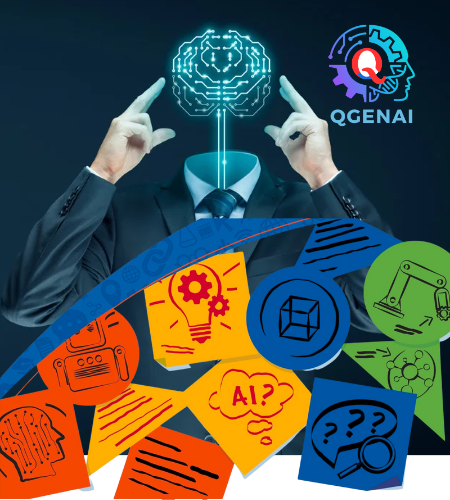The Office of Educational Technology of the U.S. Department of Education published a timely report on Artificial Intelligence and the Future of Teaching and Learning. The report includes many topics, including Building Ethical, Equitable Policies Together, What is AI?, Learning, Teaching, Formative Assessment, and Research and Development. Here is an excerpt:
Today, many priorities for improvements to teaching and learning are unmet. Educators seek technology-enhanced approaches addressing these priorities that would be safe, effective, and scalable. Naturally, educators wonder if the rapid advances in technology in everyday lives could help. Like all of us, educators use AI-powered services in their everyday lives, such as voice assistants in their homes; tools that can correct grammar, complete sentences, and write essays; tools that can create exams — QGenAI, AI-powered question generator; and automated trip planning on their phones. Many educators are actively exploring AI tools as they are newly released to the public. Educators see opportunities to use AI-powered capabilities like speech recognition to increase the support available to students with disabilities, multilingual learners, and others who could benefit from greater adaptivity and personalization in digital tools for learning. They are exploring how AI can enable writing or improving lessons, as well as their process for finding, choosing, and adapting material for use in their lessons.
Educators are also aware of new risks. Useful, powerful functionality can also be accompanied with new data privacy and security risks. Educators recognize that AI can automatically produce output that is inappropriate or wrong. They are wary that the associations or automations created by AI may amplify unwanted biases. They have noted new ways in which students may represent others’ work as their own. They are well aware of “teachable moments” and pedagogical strategies that a human teacher can address but are undetected or misunderstood by AI models. They worry whether recommendations suggested by an algorithm would be fair. Educators’ concerns are manifold. Everyone in education has a responsibility to harness the good to serve educational priorities while also protecting against the dangers that may arise as a result of AI being integrated with edtech. Here is the document below. The document is also accessible at https://www2.ed.gov/documents/ai-report/ai-report.pdf or https://tech.ed.gov
Subscribe to our email newsletter to get the latest posts delivered right to your email.


Comments